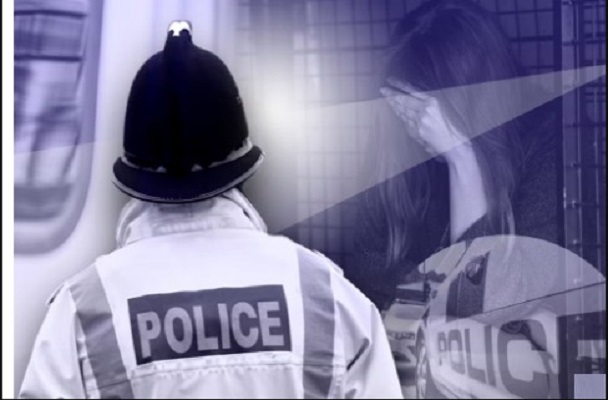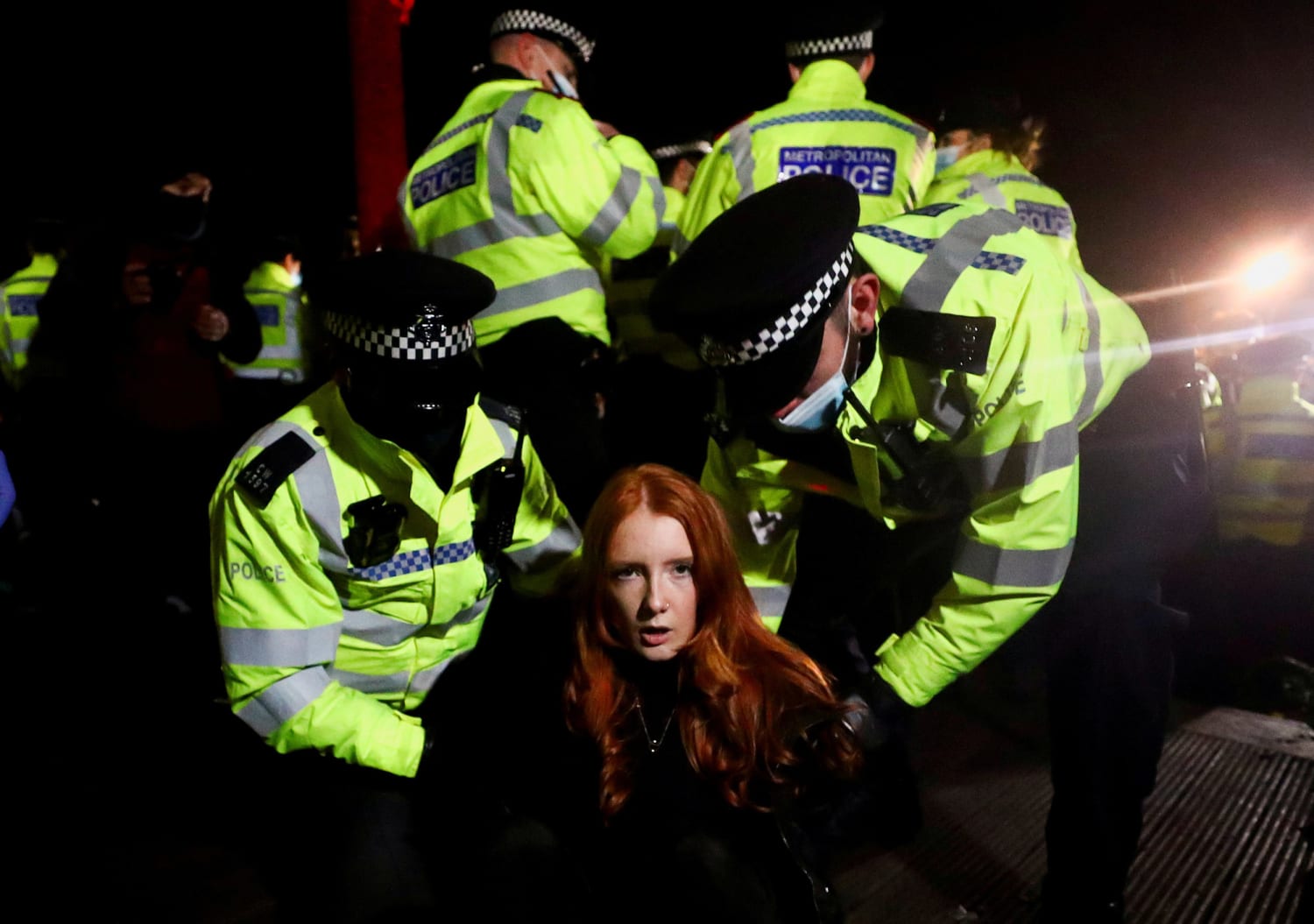In the Metropolitan Police, which was found to be institutionally misogynistic by a damning review this year in the wake of Sarah Everard’s murder by a Met officer, just 12 percent of officers and staff are being suspended from duties after being accused of crimes such as sexual assault and domestic violence, The Independent reported.
Louise Casey, the author of the review, has been joined by campaigners and policing top brass in calling on the home secretary to change the rules urgently to make suspension mandatory while allegations are investigated.
Baroness Casey told The Independent, “Officers accused of violence against women should be immediately suspended pending investigation. I think it protects them, and it protects the complainant.”
Former Police Chief Sue Fish, who was the first chief constable to record misogyny as a hate crime back in 2016, said such a move would “give victims confidence the process is being dealt with seriously”.
The joint investigation by domestic abuse charity Refuge and The Independent reveals that just 24 percent of police investigated for domestic abuse, sexual assault, rape and abuse of position were suspended across England and Wales between May 2022 and May 2023.
Data from 26 police forces shows that 1,124 police officers and staff were accused during this period, while just 269 were suspended. But the number of accusations is expected to be far higher, as not all of the 43 police forces responded to the request for information.
The figures also reveal a huge nationwide disparity in how forces respond, with Wiltshire Police suspending 83 percent of those under investigation while Surrey Police only suspended 10 percent.
Two out of 20 officers under investigation were suspended by Surrey Police, while 15 out of 61 were taken off the beat by Thames Valley Police, and four out of 18 by Merseyside Police.
In the Met, 687 police officers and staff were accused of offences involving violence against women and girls during the 12-month period, but just 84 officers and staff were suspended.
Baroness Casey added that it was important to remember that any officers suspended pending investigation could be reinstated if cleared. She also hit out at wider issues in policing, and warned that officers failed to “look for the dark side” of why people embark on a career as a police officer.
She said, “The police don’t want to believe the boys in blue are doing bad things and back them. The balance is entirely against women suffering domestic violence at the hands of the police: they are not believed, they are not listened to. If anything, there is payback to women when they make a complaint.”
Jess Phillips, the shadow minister for domestic violence and safeguarding, told The Independent that the “shocking figures show the damaging inconsistencies in police standards across forces”, and warned, “Victims are still being badly let down.”
Public confidence in policing has been in crisis following a string of scandals that highlighted the failure of the force to tackle violence against women, including the case of former Met officer David Carrick, who was sentenced to 30 years in prison for raping and assaulting at least 12 women.
Last week, the home secretary, Suella Braverman, announced plans to change the law so that police officers found guilty of gross misconduct face automatic dismissal. It means that chief constables, rather than independent lawyers, will be put in charge of misconduct hearings.
But Labour said the reforms do not go far enough, and called for officers under investigation for rape and domestic abuse to be suspended immediately.
Sign Refuge’s petition calling on Braverman to enforce mandatory suspension of all potential abusers by clicking here.
Holly, a police officer whose name changed to protect her identity, told The Independent she was in a relationship from 2012 to 2014 with a fellow officer who physically, mentally, financially and sexually abused her, and described it as the “loneliest and scariest” period of her life.
Holly broke up with him, but three years later she found that her ex-partner had moved on to another victim, prompting her to report him to the police.
“I did it to save her. I felt like he would kill her,” she said.
The investigation went on for five and a half years, and he remained a serving officer during that time. He resigned in September 2021, and a misconduct hearing found him guilty of gross misconduct in 2022.
“In the five-and-a-half-year investigation, my life was ruined. I was a shell by the end,” Holly added. She said that, in some ways, her treatment by those who were investigating her allegations was more difficult to deal with than the abusive relationship.
“I couldn’t believe how atrociously I was treated. I was treated like a ‘mental’ person who was dangerous to be around, and a liar. It was just absolutely awful,” Holly said, adding, “He was told so much information he shouldn’t have been [told], and it meant he could influence the investigation and destroy evidence, like discarding old phones.”
Refuge is calling for all police forces to impose a consistent suspension policy, with suspended officers forced to surrender their uniform, warrant card and notebooks. It also wants them to be required to surrender police-issued laptops and phones, to be blocked from police computer systems, and to be barred from their workplace.
Fish, a former chief constable of Nottingham Police, told The Independent that officers accused of domestic abuse and sex offences were usually redeployed to a different police force, though this would not stop the worst perpetrators, she said.
“You carry on because you have that entitlement, and potentially that cloak of immunity,” she said, adding, “We see that with wider of cases of sexual violence: offenders are often serial, and criminal justice interventions do not stop them reoffending.”
Fish, who retired in 2017, said many police forces restrict officers’ duties rather than suspending them, because it is assumed that alleged victims fabricate allegations.
But she said that “restricted duties” means different things to different forces, adding, “Suspension is clear: it is set out in police conduct relations.”
Fish, who alleges that she was sexually assaulted by male colleagues on two separate occasions, argued that the “culture of victim blaming and disbelief of victims” is worse in policing than in other institutions because it is a “very male-dominated” sphere.
Jamie Klingler, a co-founder of Reclaim These Streets, a police reform campaign group that supports calls for the automatic suspension of accused officers, added, “They should fast-track violence against women accusations so that it doesn’t take four years to find out.”
She raised concerns about accused officers being taken off frontline roles and put on desk duties, as this could potentially mean they are taking statements from rape or domestic abuse victims.
Harriet Wistrich, the director of the Centre for Women’s Justice, said, “You have certain powers and status as a police officer, and they can abuse those powers. The real risk is that someone who has perpetrated sex offences or domestic abuse before will do it again.”
A spokesperson for the National Police Chiefs’ Council said that chief constables “strongly consider” suspension where it is appropriate, adding that they are seeing a greater proportion of cases now leading to a suspension.
They said, “The vast majority of officers and staff are professional and committed. However, where an allegation is received, these will be taken seriously and a thorough investigation will be carried out, and where misconduct is proven, appropriate action taken.”
Watch the video below:















